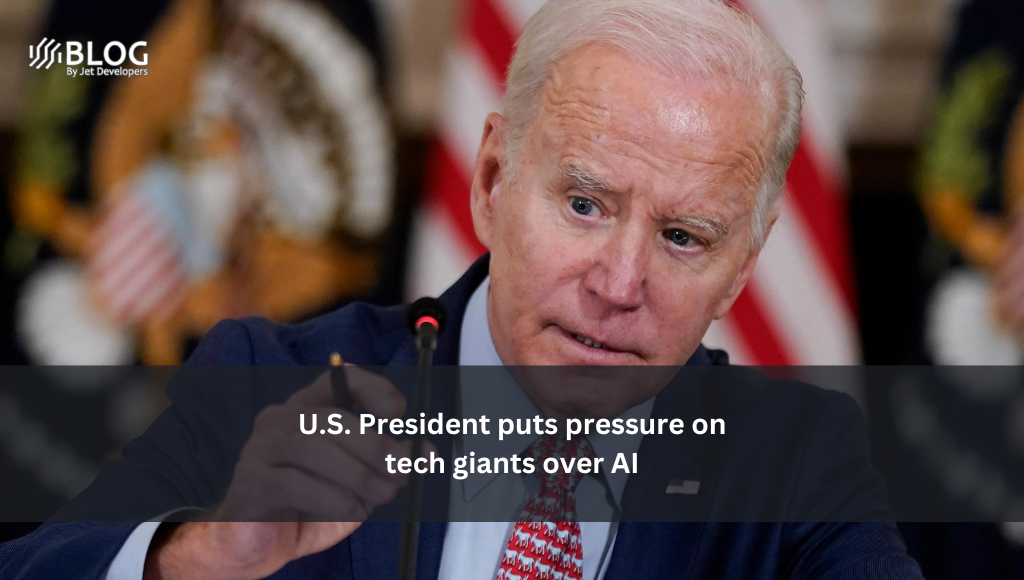U.S. President Joe Biden has called on tech companies to ensure the safety of AI products before releasing them to the public. Biden emphasized the need for appropriate safeguards to protect society, national security, and the economy from potential risks associated with AI. Social media is cited as an example of the negative impact of powerful technologies in the absence of safeguards. U.S. President Joe Biden has called on leading technology companies to ensure their products are secure before releasing them to the public, amidst growing concerns over the safety of artificial intelligence (AI). Speaking at a meeting with science and technology advisers on April 4, Biden highlighted the importance of addressing potential risks to society, national security, and the economy.
U.S. President on social media’s negative impact on AI
During the meeting, Biden cited social media as an example of the negative impact that powerful technologies can have when appropriate measures to protect against them are not in place. He said: Absent safeguards, we see the impact on the mental health and self-images and feelings and hopelessness, especially among young people.
He also emphasized the need for non-partisan privacy laws that limit the personal data gathered by technology firms, prohibit child-targeted advertising, and prioritize health and safety in product development.
Biden’s comments come amid growing concerns about the safety and ethical implications of AI, as the technology continues to develop rapidly. The ability to swiftly and effectively collect and analyze enormous amounts of data has been a significant contributing factor in the development of AI.
Also, the demand for automated systems that can complete activities that are too risky, challenging or time-consuming for humans, as well as the accessibility of enormous amounts of digital data, have also driven the development of AI.
Ethics and safety concerns drive AI research
However, societal and cultural issues have also influenced the development of AI. Discussions concerning the ethics and the ramifications of AI have arisen in response to worries about job losses and automation.
Concerns have also been raised about the possibility of AI being employed for malicious purposes, such as cyberattacks or disinformation campaigns. As a result, many researchers and decision-makers are attempting to ensure that AI is created and applied ethically and responsibly.
AI is being increasingly utilized in a variety of modern-day applications, from virtual assistants to self-driving cars, medical diagnostics, and financial analysis. Researchers are also exploring novel ideas like reinforcement learning, quantum computing, and neuromorphic computing.
One important trend in modern-day AI is the shift toward more human-like interactions, with voice assistants like Siri and Alexa leading the way. Natural language processing has also made significant progress, enabling machines to understand and respond to human speech with increasing accuracy.
The recently developed ChatGPT is an example of AI that can understand natural language and generate human-like responses to a wide range of queries and prompts.
President Biden’s call for tech companies to prioritize the safety and ethical implications of AI underscores the need for a comprehensive approach to regulating and implementing the technology. While AI presents numerous benefits, it also poses significant risks that must be addressed through responsible and ethical development and implementation.






